Once Again For the First Time
"History does not repeat itself, but it often rhymes" - Mark Twain
Here I am holding Twist in our front yard in Realengo, Rio, in 1964, under the mango tree. Nikki (our other dog) is out barking at the street outside.
On March 31, 1964, when Brazil underwent a military coup, I was a 9-year old kid living in Rio with my family. I remember that day vividly - our Pekinese dog, Twist, escaped through an open gate and ran away down the street, towards an Army headquarters behind our house. I ran after him for half a block, jumped on the ground (see the bruised knee above), picked him up and heard a gunshot. I turned around slowly to see some armed soldiers guarding the entrance to the armored tank regiment. I never found out if they fired a warning shot to scare me or if it was part of a training for the military maneuvers that spread throughout Rio de Janeiro later that day. I ran back home with Twist.
As a kid, it was hard for me to understand what happened that day, when João Goulart, a democratically elected President, was deposed while a military junta took over the government. The radio mentioned some kind of “communist menace” that needed to be destroyed. All this happened, we found out later, with full cooperations of the US government. A few years later, in 1968, with the generals firmly settled in power, things got a lot more complicated when the infamous AI-5 (Institutional Act 5) was enacted, eliminating all civil rights for everyone. We heard talk on the radio about the Calabouço, a student cafeteria in downtown Rio where Edson Luís, one of the students protesting against the government, was shot and killed. Often when going to downtown Rio to run errands I would find myself in the middle of street demonstrations with a lot of tear gas. These amazing photos by the recently departed Evandro Teixeira depict what life was like in Brazil in the 1960s:
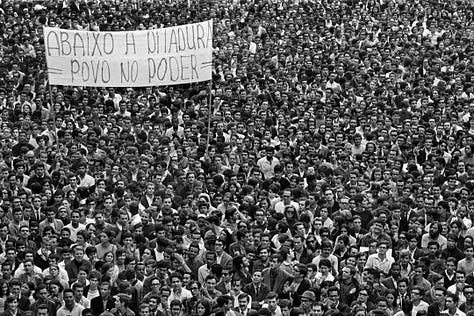
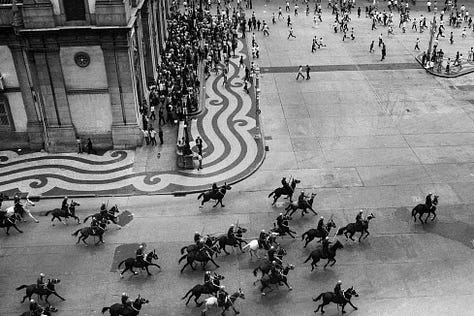
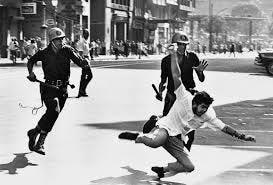
At age 15 I was playing in a local rock band, and as a musician, I was forced to be identified at the Central Censorship Office, a nasty old building where we had to go and register all songs we played. Titles and lyrics were scrutinized for possible mentions of words like “liberty”, “people” and “fight”. Even my spacey lyrics, inspired by the science fiction books I was reading at the time, had to be filed and discussed with a bureaucratic censor before we could ever play it in public.
A rehearsal for the Vacancy Group in 1971, Bangu, Rio. I am behind the electric organ waving at the camera. We practiced 4 times a week.
The military rule in Brazil lasted for 25 years until 1989, when I was allowed to vote for President for the first time in my life. By that time I had been playing in Hermeto Pascoal’s Grupo for 12 years, touring around the world and producing several albums for the Grupo.
Onstage with Hermeto Pascoal, Carlos Malta and Itiberê Zwarg, Grenoble, France, 1989
I am telling this story to remind myself and all my subscribers that in times of extreme restriction of liberties, music can not only blossom and thrive, but it can be a crucial instrument of change and connection among humans.
If you know and follow Brazilian music and musicians, you will know that the most creative period of artistic expansion in my home country happened exactly during the 60s and the 70s, under one of the most radical military dictatorships in the world. Composers like Milton Nascimento, Chico Buarque, Edu Lobo and Hermeto Pascoal had their work censored, cancelled and forbidden. Still they found many ways to continue their creative stream and to communicate their art, defying all opposing forces. In Hermeto’s case, while he never made a political statement with words, his advanced universal concepts of rhythm, melody and harmony did that. Even so, when he composed a piece to be played by cooking pots with stones inside, that message was understood by many to be a protest on behalf of those who did not have enough food to eat.
I feel that I share a nomadic genome that propels people to embark on journeys to distant lands. Musicians, pirates, sailors, refugees, pilgrims, hunters, gatherers and exiles do this, either by inner urge or when forced by outside circumstances. Not everyone does it - most folks are perfectly happy living their entire lives within a radius of a few miles.
My own journey has been one of constant journeying. I travel to learn, to perform and to experience different cultures. As an immigrant to the United States, I share the despair of other humans who came here in search of a better life, only to be treated as inferior beings. The fact that this country was created and developed by immigrants is ignored by those who would never hold the ladder for others to climb.
What I never thought is that I had to say this today in November 2024. I understand that many of you are right now trying to cope with very conflicting emotions and feelings resulting from the latest American election. While I cannot offer solace to all, some of you might find comfort in the incredible power of the arts to give hope to the human spirit and capacity for empathy and love. This power can also give rise to a radical transformation. To quote Raymond Williams, “To be truly radical is to make hope possible instead of despair convincing.”
To finish this post, I’d like to share a video from last night. My Quarteto, with Tim Carey on bass and Ben Thomas on vibraphone was joined by 15-year old Luca Manzo on drums at the Seattle Jazz Fellowship. To be able to share music across generations is a blessing that I am grateful for every day. This composition is called Vivendo no Presente (Living In the Present). A good reminder to all of us…
Enjoy!
Jovino


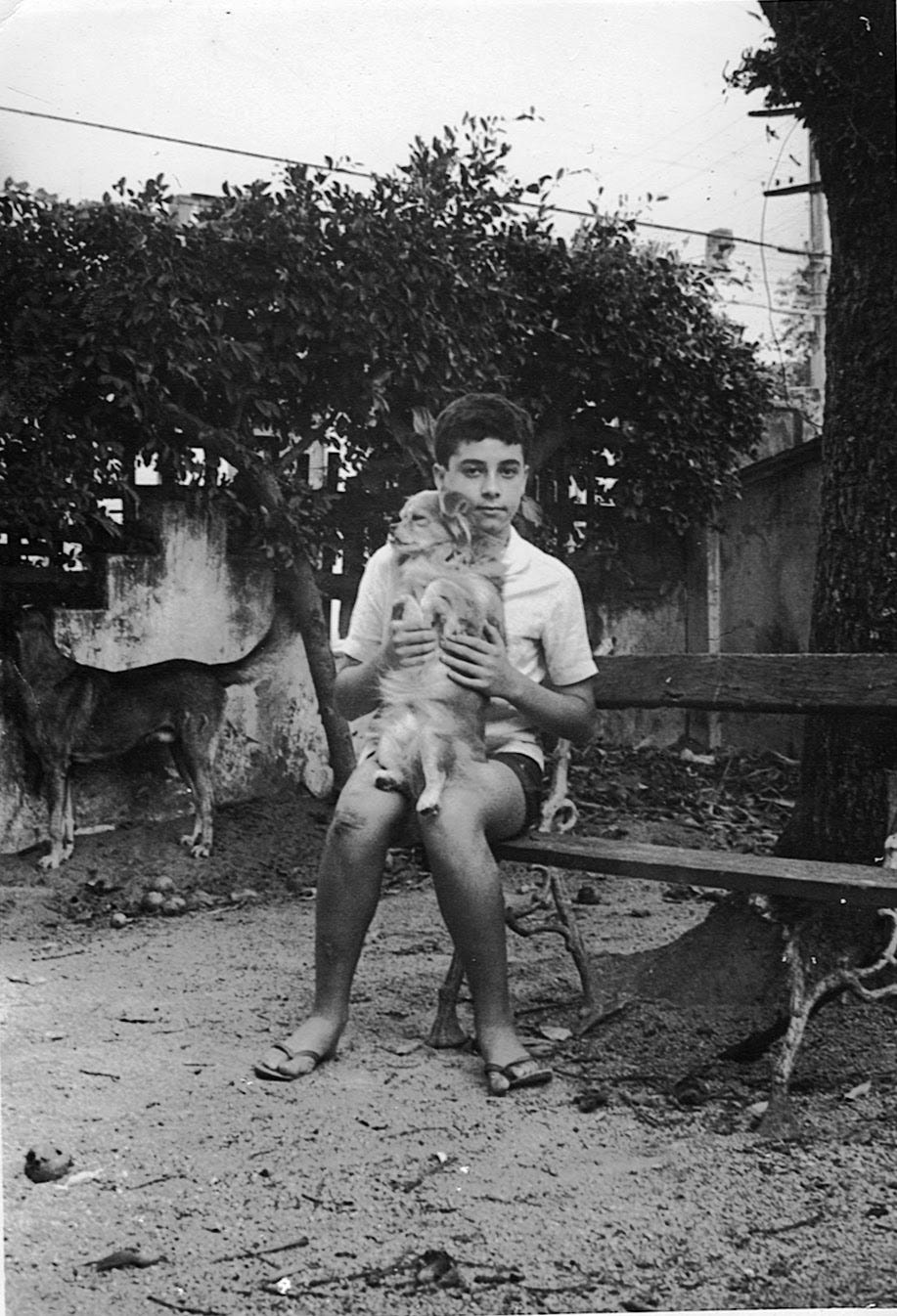
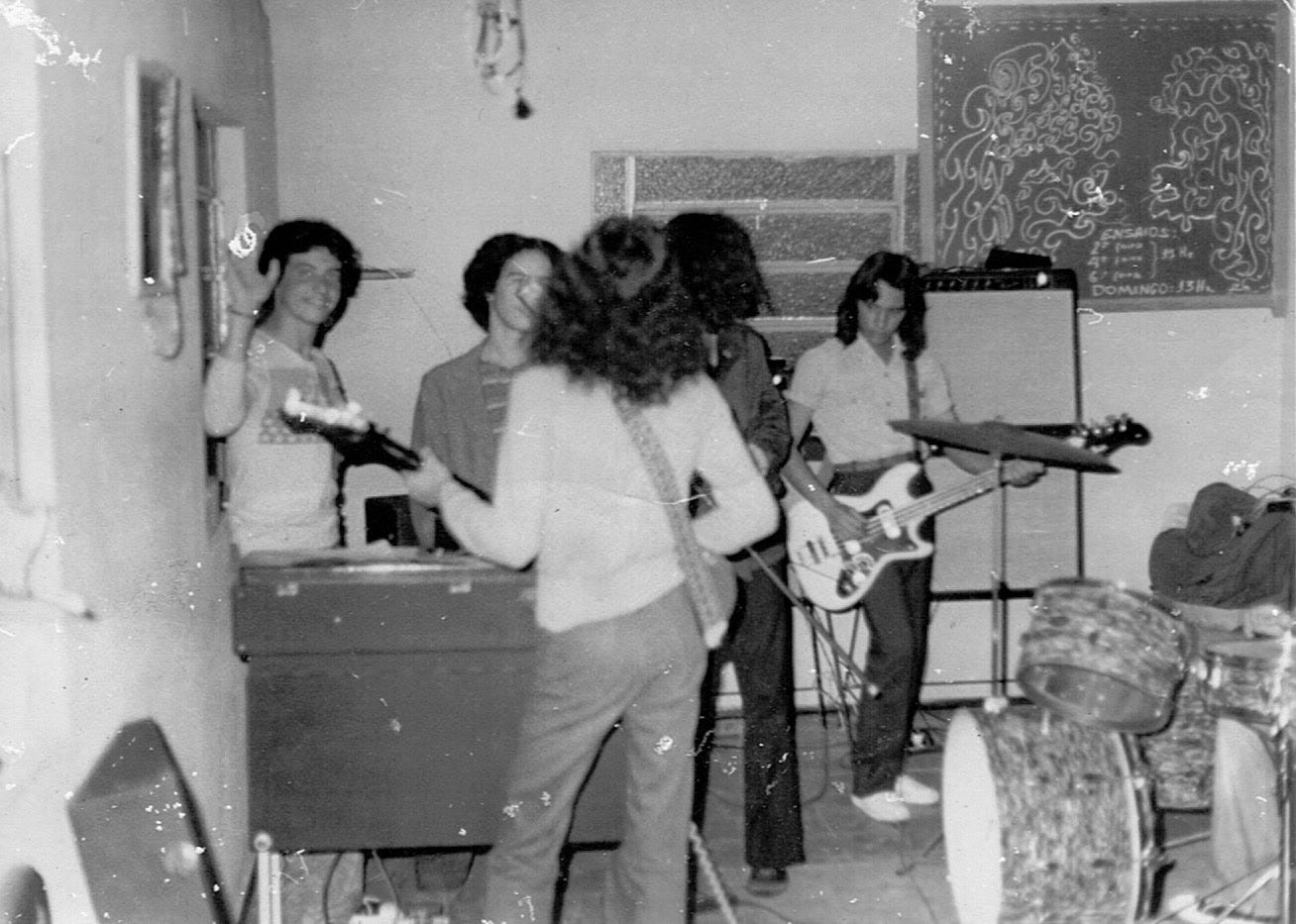
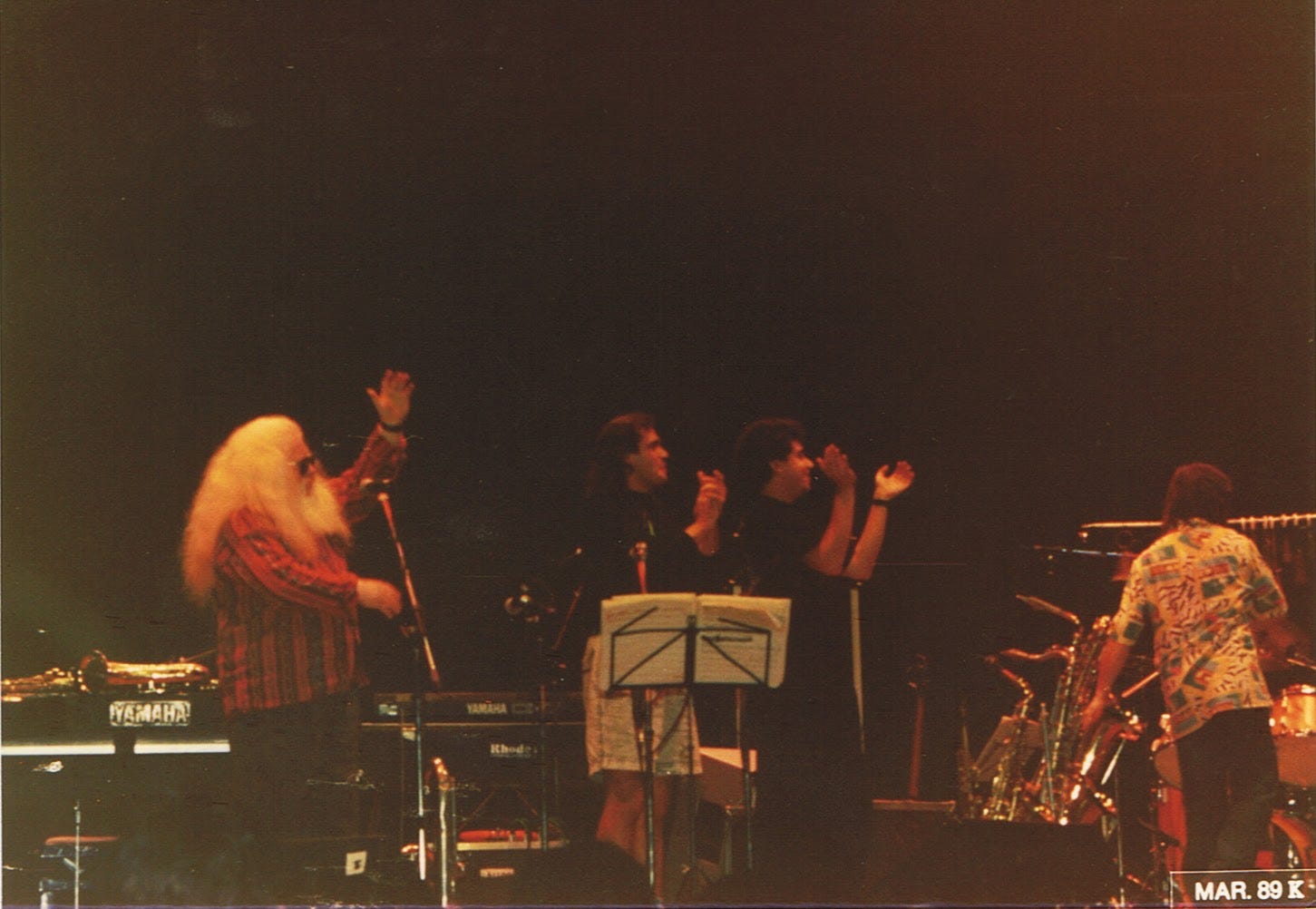
Thank you! Jovino for sharing your fascinating story of youth and beyond. We learn, and we learn, and we learn!
Thanks so much for your deep perspective in the midst of these dark times Jovino. 🙏♥️